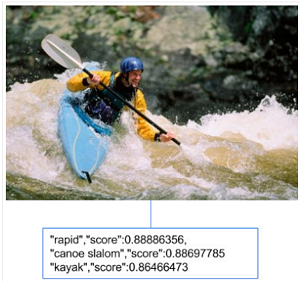News
Google Releases Cloud Vision API for Understanding Image Content
- By David Ramel
- December 4, 2015
Google released its homegrown Cloud Vision API to help developers create applications with sophisticated image recognition technology that powers Google Photos.
"Developers can now build powerful applications that can see, and more importantly understand, the content of images," according to a post Wednesday on the Google Cloud Platform Blog. "The uses of Cloud Vision API are game changing to developers of all types of applications and we are very excited to see what happens next!"
With the Cloud Vision API, now in a limited, invitation-only preview, developers can apply several features to work with images, alone or in combinations. These include the detection of dominant entities (or major "things" that appear in an image), inappropriate content, human faces, landmarks and logos, along with optical character recognition that extracts text from an image.
"Cloud Vision provides powerful image analytics capabilities as easy-to-use APIs," said a Google spokesperson in a video accompanying the blog post. The video depicts a Raspberry Pi-based robot that can move around and identify objects such as faces. Programmed by just a few hundred lines of Python code, the robot can even detect what emotions a face is exhibiting, such as joy, anger or surprise and, for example, move toward joyful faces and away from angry faces.
 [Click on image for larger view.]
The Cloud Vision API in Action (source: Google)
[Click on image for larger view.]
The Cloud Vision API in Action (source: Google)
With entity detection, the robot can identify any "thing" that a developer is interested in. It detected, and vocalized, for example, that the video spokesperson was wearing glasses and separately holding a banana, car and money.
"Cloud Vision lets developers take advantage of Google's latest machine learning technologies quite easily," the spokesperson said. Those machine learning technologies include TensorFlow, which was just recently open sourced by Google.
"With Cloud Vision API, you can build metadata on your image catalog, moderate offensive content, or enable new marketing scenarios through image sentiment analysis," Google said. It invited interested developers to sign up to participate in the limited preview of the API.
About the Author
David Ramel is an editor and writer at Converge 360.